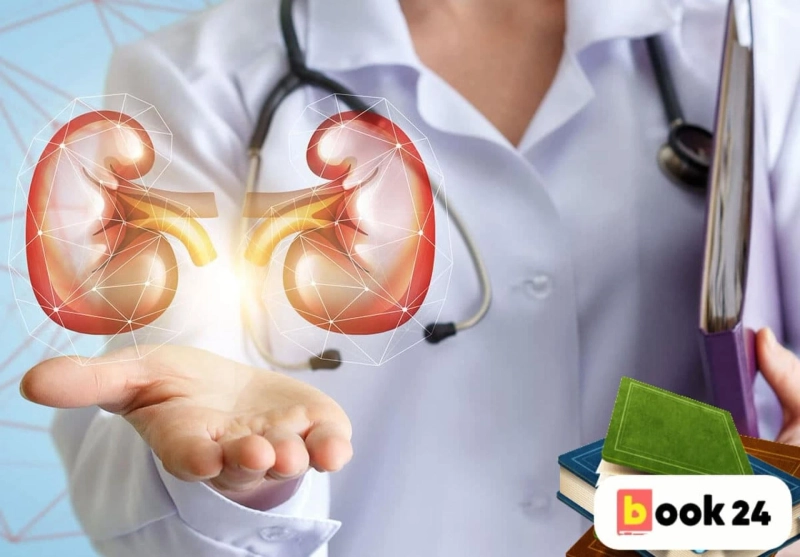The most effective treatment for hypertension in the pulmonary artery is discovering the problem and addressing the root causes. Unfortunately, however, it is required for many patients suffering from this condition.
Basic assessment
The initial step in treating pulmonary hypertension should be to evaluate its severity. Condition. This test assists the physician in determining how to react to treatment and allows the doctor to assess the effectiveness of treatment. Riverside Nephrology provides the best nephrology physicians in the USA. An echocardiogram usually does it. It provides an estimation of the pulmonary artery pressure. It also serves as an exercise test that measures the initial capacity to perform.
Medical conditions that require treatment in the subset
Typically, harsh treatment is the primary reason behind pulmonary hypertension. It is the most crucial element of the treatment. Since there are a variety of medical conditions that cause hypertension in the lungs, treatment may take many forms.
Treatment can be beneficial to those with high blood pressure.
In addition to treatment specific to treat the root cause, there is a treatment option that can benefit patients suffering from pulmonary hypertension.
Diuretics like LASIK and Bomax are commonly employed to reduce fluid retention, which is often associated when you suffer from pulmonary hypertension. Diuretics can lead to shortness of breath and edema (swelling); however, it is essential to be cautious when using diuretics. Removing excess fluid from patients suffering from hypertension in the pulmonary arteries can cause a decline in heart function.
Treatment for hypertension pulmonary
Oxygen therapy is crucial for those suffering from pulmonary hypertension and suffers from hypoxia (decreased level of oxygen in the blood). If hypoxia is present, oxygen therapy can directly lower blood pressure in the pulmonary arterial system. Patients suffering from high pulmonary pressure due to heart disease or lung diseases are more likely to suffer from hypoxia. However, any person suffering from pulmonary hypertension should have the blood oxygen levels of their patients checked.
Anticoagulants, such as coumadin, are frequently prescribed to patients suffering from high blood pressure in the pulmonary region. This is because the condition can leak into the bloodstream. This could cause blood clots within the lung's blood vessels—the medications designed to reduce blood clots.
Digoxin may improve the heart's function in certain patients suffering from high blood pressure in the pulmonary region.
Exercise has been found to dramatically increase the functional capabilities of people suffering from pulmonary hypertension.
Advanced treatment
"Advanced" is the main reason behind lung hypertension rather than pulmonary hypertension. This type of treatment usually includes the use of antivasodilator medicines to improve the circulation of the lungs and decrease blood pressure in the lungs.
Advanced treatment is described in the context of "advanced" not because it is more effective than conventional treatments but simply because it is a bit complicated, costly, risky, and frequently uncomfortable (e.g., it may require intravenous injections). Intravenous). Specialists should only administer advanced treatments in treating hypertension in the lungs.
Advanced treatment is a possibility for patients suffering from severe hypertension in the lungs that have not responded to treatment for the root reason behind the cause or when the root cause is identified (i.e., those who suffer from primary pulmonary hypertension).
Suffer from primary pulmonary hypertension
Advanced treatment isn't typically employed in patients with high blood pressure caused by the axillary heart condition (where the treatment is more likely to harm) or in patients with lung disease (with no evidence to suggest benefits). Be...
Before undergoing a more advanced treatment, a specific cardiac catheterization test is carried out to evaluate pulmonary circulation's "active concentration. Riverside Nephrology provides the best Transplant Coordinator in the USA. " In this test, drugs are administered to determine if the blood vessels within the lungs can contract. If they do, specific advanced treatments tend to be successful.
The long list of choices makes it difficult to choose the "best" drug or "best" combination of drugs. When making this decision, there are many factors to consider, including the cause of the disease, extent of hypertension and the amount of active cartilage, the particular drugs covered by insurance plans, and the potential side adverse effects. This is why these decisions must be taken by doctors who are experts in treating hypertension in the pulmonary arteries.
Summary
The most effective therapy for patients with pulmonary hypertension could be a challenge and complicated. Therefore, patients suffering from pulmonary hypertension agree to cooperate as best they can in collaboration with their doctors to make treatment decisions, closely monitor and report signs and symptoms and their functional capacities and adhere to a prescribed diet.
If you suffer from an issue with your urinary tract, you may consult a Urologist.
Urology is a medical field specializing in issues with the urinary tract and female reproductive organs. The urinary tract comprises the kidneys as well as bladder and ureters.
A lot of people consider urology to be a surgical field, and most urologists focus upon one or two essential subspecialties, such as:
Kidney transplant
Gynecological UrologyMale InfertilityErectile dysfunctionUrinary tract stonesCancer (urinary tract cancers)Pediatric Urology (pediatric urinary tract disorders)The Neurology (control on the nerve system or the urogenital system)Nephrologists and Urologists sometimes collaborate because of the overlap between specific organs. For example, urologists participate in renal transplant procedures. In addition, urologists and nephrologists collaborate in situations that involve factors like the recurrence of urinary tract infections or stones.
The final word
Nephrologists are doctors who concentrate on ailments that affect the kidneys. They are usually able to detect, assess and treat severe to moderate kidney disease or assist people at risk of developing kidney disease to reduce the possibility of damage to their kidneys.
A family doctor, pediatrician, or emergency physician can send patients who believe they may have kidney issues to a nephrologist. The duration of time that a nephrologist treats someone is contingent on various aspects, including the degree of kidney dysfunction or damage to the kidneys.
0



